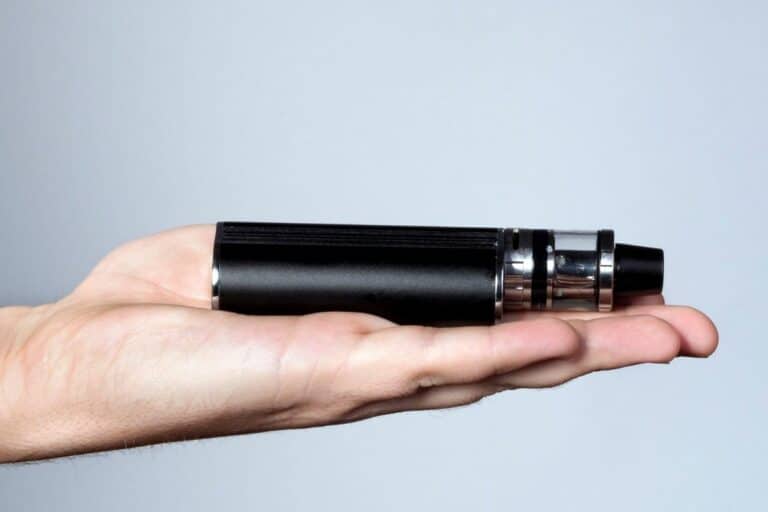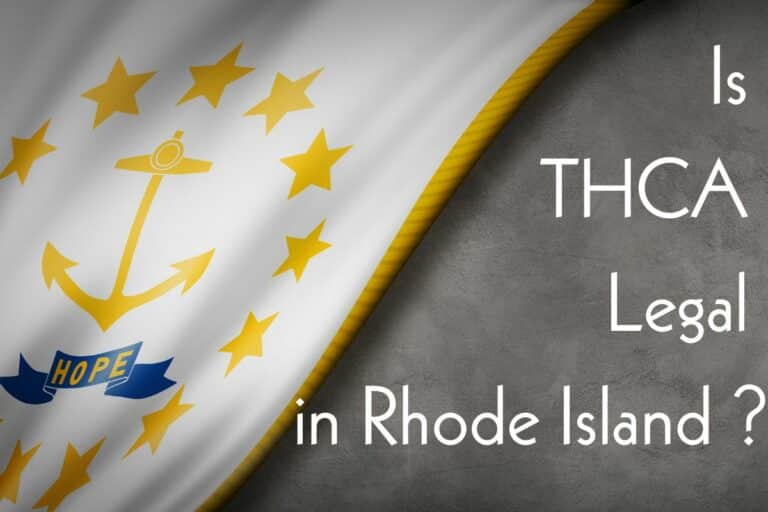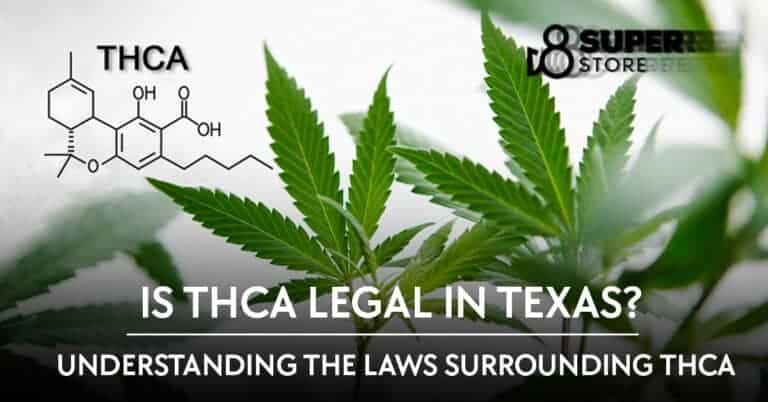Is Delta 8 Legal? Unveiling the Truth
Delta-8 THC, the cool cousin to the well-known Delta-9 THC in weed, is sparking some serious conversations. It’s known for its gentler buzz, and folks are chatting up a storm about its health perks. What’s really heating up talks is whether it’s legal and safe, with Delta-8 THC goodies right in the thick of it all. And yeah, there’s a lot of whispers about the dangers too. Got your attention? Absolutely!
The legal status of Delta-8 THC is complex and varies across the United States. While some states have explicitly outlawed its production and sale, others allow for its use under specific circumstances, further complicating matters. The uncertain legal standing of Delta-8 THC and the rapid growth of its market demand have prompted consumers, producers, and lawmakers alike to question the future of this controversial cannabinoid.
Key Takeaways
- Delta-8 THC is a less potent cannabinoid that offers potential therapeutic benefits but has an ambiguous legal status.
- Legal status of Delta-8 THC varies across states, adding complexity to its production, sale, and use.
- Safety concerns and potential risks need to be addressed alongside ongoing research on the benefits of Delta-8 THC.
What is Delta-8 THC
Comparison to Delta-9 THC
Delta-8 THC is a lesser-known cannabinoid found in the cannabis plant. It shares similarities with the more widely known Delta-9 THC, which is the primary psychoactive compound in cannabis. However, Delta-8 THC is typically found in much smaller quantities and has a slightly different molecular structure. This results in Delta-8 having a lower psychoactive potency compared to Delta-9 THC, making its effects on the body more subtle and potentially offering certain therapeutic benefits such as reducing anxiety1.
Chemical Structure
Delta-8 THC, like Delta-9 THC, is a cannabinoid produced in the cannabis plant by converting cannabidiol (CBD) through isomerization. The chemical difference between Delta-8 and Delta-9 THC lies in the position of a double bond in their molecular structure. This seemingly small difference has a significant impact on how each compound interacts with the body’s endocannabinoid system, which comprises receptors such as CB1 and CB22.
Effects on the Body
Both Delta-8 THC and Delta-9 THC interact with the body’s endocannabinoid system, binding to CB1 receptors mainly found in the brain. This interaction is responsible for the psychoactive effects experienced when consuming products containing either compound. However, Delta-8 THC binds less tightly to these receptors than Delta-9 THC, resulting in its reduced psychoactive potency2.
Despite the lower potency, Delta-8 THC can still produce psychoactive effects, such as alterations in mood, perception, and cognition. Early research suggests that it might also have potential therapeutic benefits, including anti-anxiety1, antiemetic (anti-nausea), and analgesic (pain-relief) properties3. However, it is important to note that more research is needed to fully understand the scope and implications of these effects.
Legal Status of Delta-8 THC

Federal Level
The legality of Delta-8 THC at the federal level is ambiguous due to the 2018 Farm Bill which legalized industrial hemp and its derivatives containing less than 0.3% Delta-9 THC. Delta-8 THC, although similar to Delta-9 THC, is not explicitly mentioned in the bill. This has led to its controversial legal status, as it can be derived from legal hemp and is sold within the legal limit of Delta-9 THC.
The Drug Enforcement Administration (DEA) has classified Delta-8 THC as a controlled substance, creating uncertainties for its manufacturers and users. Additionally, the Food and Drug Administration (FDA) has not regulated Delta-8 THC yet, meaning it lacks oversight and there might be potential health risks associated with its usage.
State by State Legality
The legality of Delta-8 THC varies by state, with some states outright banning the compound, while others allow for its sale and use, under specific conditions.
| Colorado and California are two examples where recreational use of marijuana is legal, but Delta-8 THC remains strictly controlled. Colorado has prohibited the sale of Delta-8 THC derived from hemp, citing concerns about the unregulated production process, whereas California treats Delta-8 THC as a controlled substance, subject to strict regulations. |
| In contrast, some states follow the federal guidelines based on the 2018 Farm Bill that allows for the production and sale of Delta-8 THC, as long as it contains less than 0.3% Delta-9 THC and is derived from industrial hemp. |
It is important to note that state laws are subject to change and vary widely, so it is essential to research and understand the specific regulations regarding Delta-8 THC in your state before accessing or using the compound.
Delta-8 THC Products
Delta-8 THC is gaining popularity due to its similarity to Delta-9 THC, the main psychoactive compound found in cannabis. Despite its legal ambiguity, various Delta-8 THC products have emerged in the market, offering consumers alternative options to traditional cannabis.
Gummies
Delta-8 THC gummies are a popular edible form of Delta-8 THC. They typically come in a variety of flavors and can be found in some stores and online. Labeling for these products can vary, and it is important for consumers to verify the authenticity and contents of Delta-8 THC gummies, as not all products may contain the pure compound. Users should also be cautious with dosages, as the appropriate dose can differ depending on individual tolerance levels.
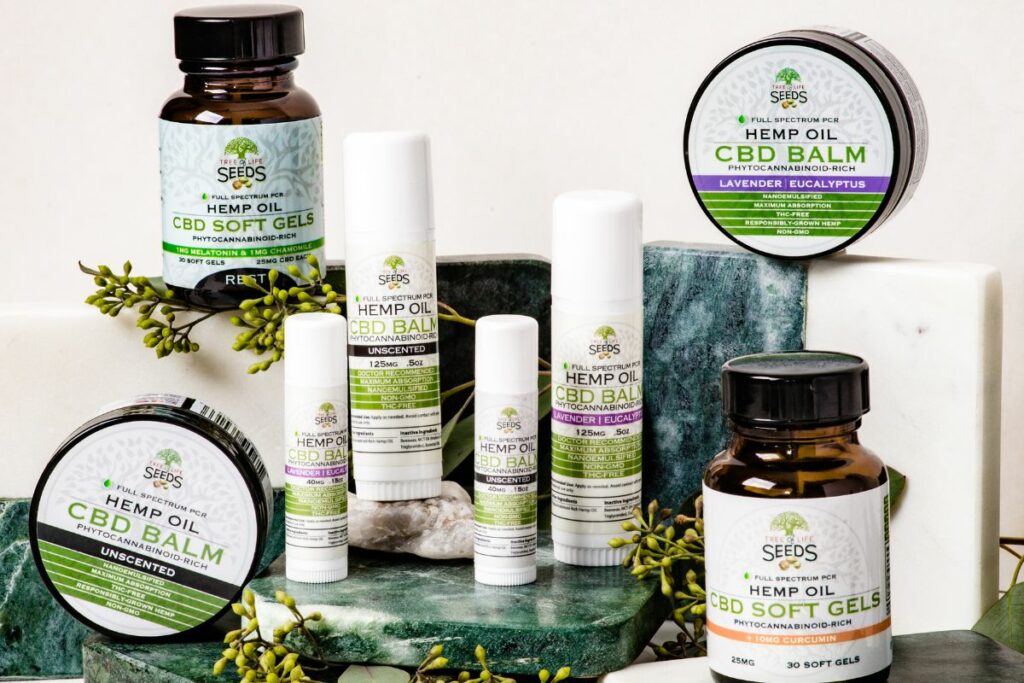
Tinctures
Tinctures are another common Delta-8 THC product that allows users to consume the compound orally or sublingually. These products usually come in glass bottles with droppers for precise dosing. When purchasing a Delta-8 THC tincture, it is crucial to ensure that you are buying from a reputable source, as the lack of regulatory oversight can lead to inconsistencies in the quality of the product.
Edibles
In addition to gummies, there are various types of Delta-8 THC edibles available, such as baked goods, candies, and chocolates. Similar to purchasing gummies, it is important for consumers to verify the quality and safety of edibles before consumption. While online and in-store availability may vary, it is crucial to check the source and labeling of Delta-8 THC edibles.
It is essential for consumers to stay informed about age limits and regulations surrounding Delta-8 THC in their jurisdiction, as legal statuses may differ. As Delta-8 THC becomes more prevalent in the market, consumers should continue to educate themselves on its effects and potential risks. With proper research and responsible consumption, users can explore the world of Delta-8 THC products.
Safety and Potential Risks
Delta-8 THC has gained attention due to its legal loopholes and potential therapeutic benefits. However, there are concerns about the safety and potential risks associated with its use. This section explores these aspects, focusing on adverse events and contaminants.
Adverse Events
Although Delta-8 THC is considered less potent than its more well-known cousin, Delta-9 THC, there are still potential adverse events that users may experience. According to a report, some of these events include:
- Dizziness
- Fatigue
- Increased heart rate
- Lack of coordination
- Psychotic symptoms in predisposed individuals
It's important to note that further research is needed to determine the long-term effects and establish the safety profile of Delta-8 THC products.
Contaminants
There is a growing concern about the quality control of Delta-8 THC products, as the lack of regulation in the market can lead to the presence of contaminants. One common issue is the presence of lead in some products. High concentrations of lead pose a threat to public health and can lead to serious health issues.
It is essential for consumers to choose Delta-8 THC products that have been tested by reputable third-party labs to ensure their safety. This can help verify that the concentrations of delta-8, as well as any other cannabinoids, are within acceptable limits and that no harmful contaminants are present.
The Delta-8 THC market is rapidly evolving, and as a result, regulations and guidelines must be established to ensure the safe and beneficial use of these products. By focusing on quality control measures and staying up-to-date with current research, both producers and consumers can help promote a safer and more responsible Delta-8 THC market.
Current Research and Potential Benefits
Delta-8 THC is a cannabinoid found in hemp and cannabis plants. It has gained attention for its potential medical benefits and legal status. Research on this compound is still in its early stages, but some studies have shown promising results in terms of its effects on anxiety, pain, and brain receptors.
One of the potential benefits of Delta-8 THC is its ability to provide relief from anxiety. A study found that participants reported reduced anxiety levels after using Delta-8 products. The compound may have a calming effect on the body, helping individuals cope with stress and tension.
Another area of interest is Delta-8 THC’s potential for pain relief. Preliminary research has indicated possible analgesic properties that could aid in the management of chronic pain. This could be especially useful for patients seeking alternatives to traditional pain medications.
In terms of how Delta-8 THC interacts with the brain, it binds to the CB1 and CB2 receptors, similar to its more well-known cousin, Delta-9 THC. However, the binding affinity is weaker, potentially resulting in less intense psychoactive effects. Some users have reported experiencing a more clear-headed and functional high compared to Delta-9 products.
Despite the current legal status of Delta-8 THC products in some areas, there is a rising demand for more research to better understand its benefits and limitations. As mentioned earlier, the compound’s ability to interact with brain receptors indicates that it may have therapeutic potential. With further studies, we can gain a clearer understanding of how Delta-8 THC may have the potential to improve quality of life for individuals dealing with anxiety and chronic pain.
It is essential to keep in mind that research on Delta-8 THC is still ongoing. While early findings are promising, more studies are needed to confirm its effectiveness and safety. Until then, users should exercise caution and consult with a healthcare professional when considering the use of Delta-8 THC products.
Future of Delta-8 THC Legality

Possible Changes in Legislation
The future legality of Delta-8 THC is uncertain due to its current unregulated status and confusion surrounding federal laws. While Delta-8 THC is technically derived from legal hemp, it has psychoactive properties which may lead to its reclassification under the Controlled Substances Act (CSA). As a result, this could require government intervention and new legislation to clarify the compound’s legal status.
Congress may consider closing loopholes in the existing hemp regulations to prevent producers from using these inconsistencies to derive Delta-8 THC. State governments may also draft and enact legislation to either regulate or ban the compound, depending on local perspectives and opinions of stakeholders.
Impact of Public Opinion
Public opinion may also play a significant role in shaping the future of Delta-8 THC legality. As awareness of the compound grows, individuals and interest groups may influence legislators by expressing their positions and concerns. The dissemination of information on the potential risks and benefits of Delta-8 THC is likely to influence whether lawmakers pursue stricter regulations or enable greater access.
It is essential for future legislation to strike a balance between protecting public health and fostering responsible access to Delta-8 THC. The key will be crafting regulations that address potential risks without hindering the development of beneficial products derived from this compound. As the debate around Delta-8 THC’s legal status continues, it will be crucial for all parties involved to remain informed and engaged in the conversation.
State Legislation Examples
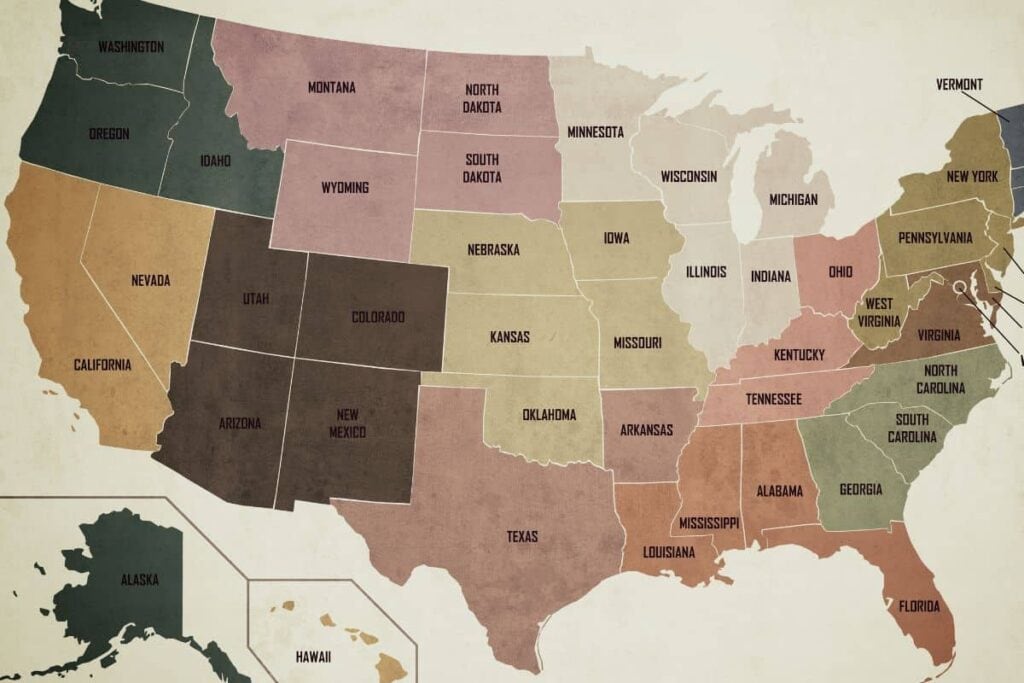
States with Strict Regulations
In some states, Delta-8 THC faces strict regulations. For example, Colorado has banned Delta-8 THC due to the potential risks associated with its use. Other states with strict laws include:
| Michigan: | The state has categorized Delta-8 THC under the same regulations as Delta-9 THC, effectively banning its sale |
| Utah and Montana: | Both states have explicitly included Delta-8 THC in their controlled substances lists, making it illegal to produce, sell, or possess. |
States with Lax Regulations
On the other hand, some states have more lenient regulations regarding Delta-8 THC. Examples include:
- Alaska: Although recreational cannabis is broadly legal in Alaska, Delta-8 THC remains unregulated, creating a gray area for its sale and use.
- Arizona: Delta-8 THC is not explicitly mentioned in Arizona’s cannabis laws, allowing for a more relaxed regulatory stance.
- Minnesota: The state does not specifically regulate Delta-8 THC, leading to a more lenient environment for its sale and use.
Many states have not explicitly addressed Delta-8 THC in their legislation, leading to a patchwork of rules across the country. Some states, like Arkansas, Delaware, Idaho, Iowa, Mississippi, Rhode Island, and New York, have adopted stricter regulations for the compound. In contrast, states such as Kentucky, Vermont, Connecticut, Nevada, Louisiana, South Dakota, Virginia, and Maryland have more relaxed laws or have not yet explicitly addressed the issue.
In conclusion, Delta-8 THC regulations differ significantly between states. It is crucial to familiarize oneself with the rules in one's specific location to ensure compliant use and distribution.
Frequently Asked Questions
Is the federal government banning Delta-8?
The federal government has not banned Delta-8 outright. The 2018 Farm Bill, which legalized hemp-derived products containing less than 0.3% Delta-9 THC, has inadvertently created a gray area where Delta-8 has become available. However, there is growing concern and scrutiny surrounding Delta-8, which may lead to future regulation.
Are there restrictions on Delta-8 in certain states?
Yes, some states have already imposed restrictions on Delta-8. While Delta-8 remains legal in several states, individual states have the authority to regulate or ban it if they choose to do so. It is essential to research your state’s specific laws to understand the current legal status of Delta-8.
Do Delta-8 gummies fall under the same legality guidelines?
Delta-8 gummies are subject to the same legality guidelines as other Delta-8 products. If Delta-8 is considered legal in your state and meets the federal guidelines set by the 2018 Farm Bill, Delta-8 gummies would also be legal. However, it is crucial to verify that the product meets the necessary requirements.
Can Delta-8 cause a positive result on a drug test?
Delta-8 can potentially cause a positive result on a drug test. Standard drug tests cannot differentiate between Delta-8 THC and Delta-9 THC, the psychoactive compound found in marijuana. If you use Delta-8 products and get tested for THC, it may result in a positive test, even if you have not used marijuana.
Is the legality of Delta-8 different from Delta-9?
Yes, the legality of Delta-8 and Delta-9 differs due to the 2018 Farm Bill. It legalized hemp-derived cannabinoids with less than 0.3% Delta-9 THC content, inadvertently including Delta-8, as it is a minor cannabinoid produced in hemp. However, Delta-9 remains a controlled substance, and state-specific legislation varies for both Delta-8 and Delta-9 THC.
Are there specific regulations for synthetic Delta-8?
Currently, there is ambiguity around the specific regulation of synthetic Delta-8. The legal status of Delta-8 mainly pertains to derivatives from hemp. Synthetic production mostly falls under the jurisdiction of controlled substances and the analog act. As a result, regulations for synthetic Delta-8 can be complex and depend on the methods used for production and the state in which they are sold.
Footnotes


